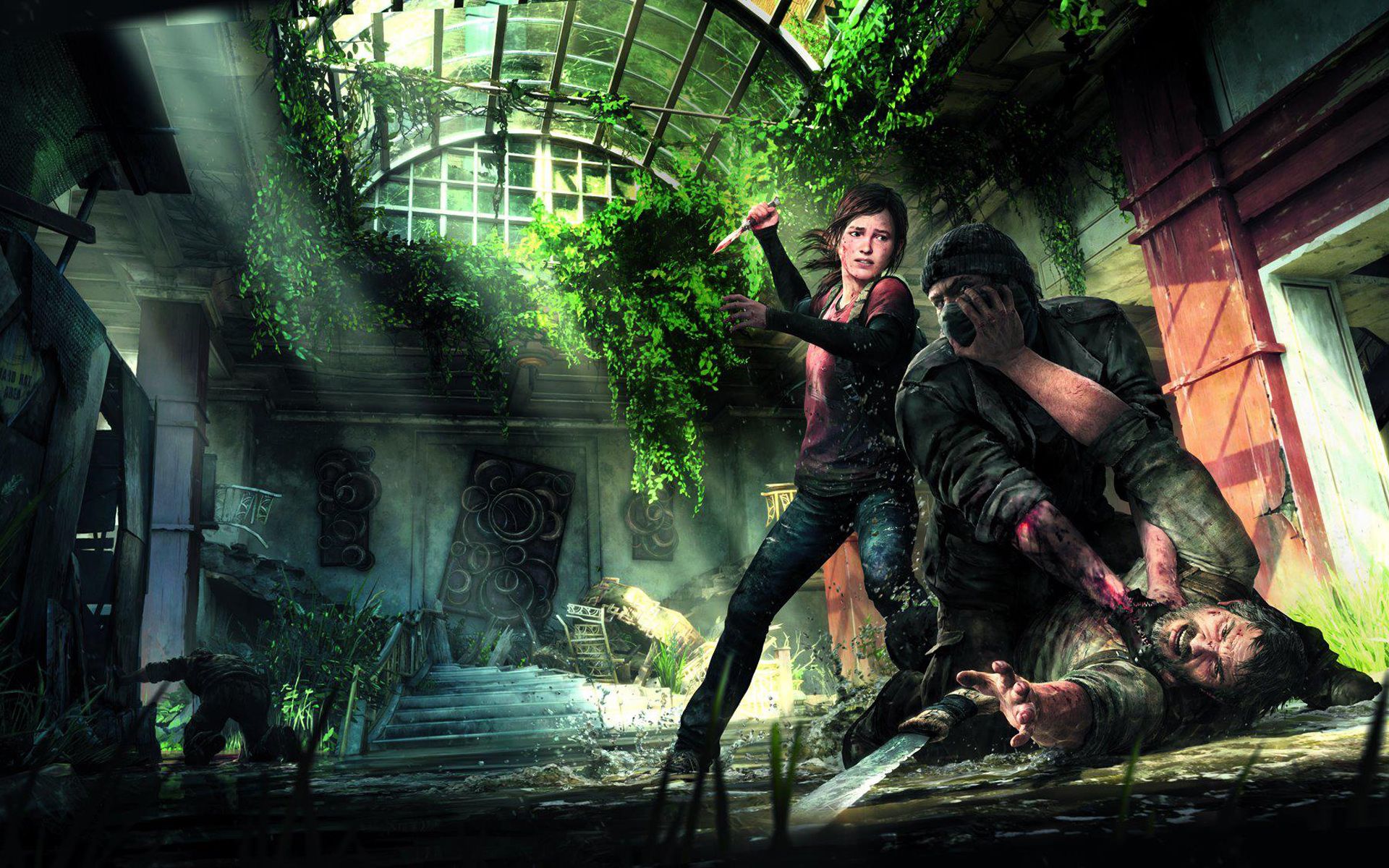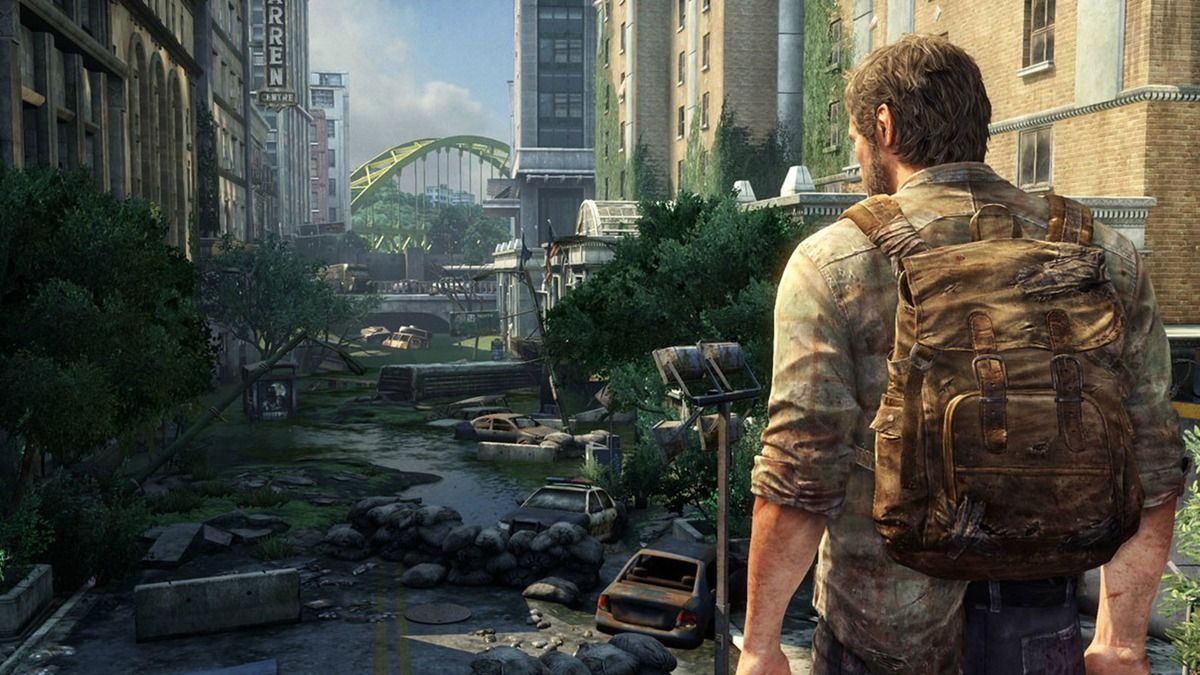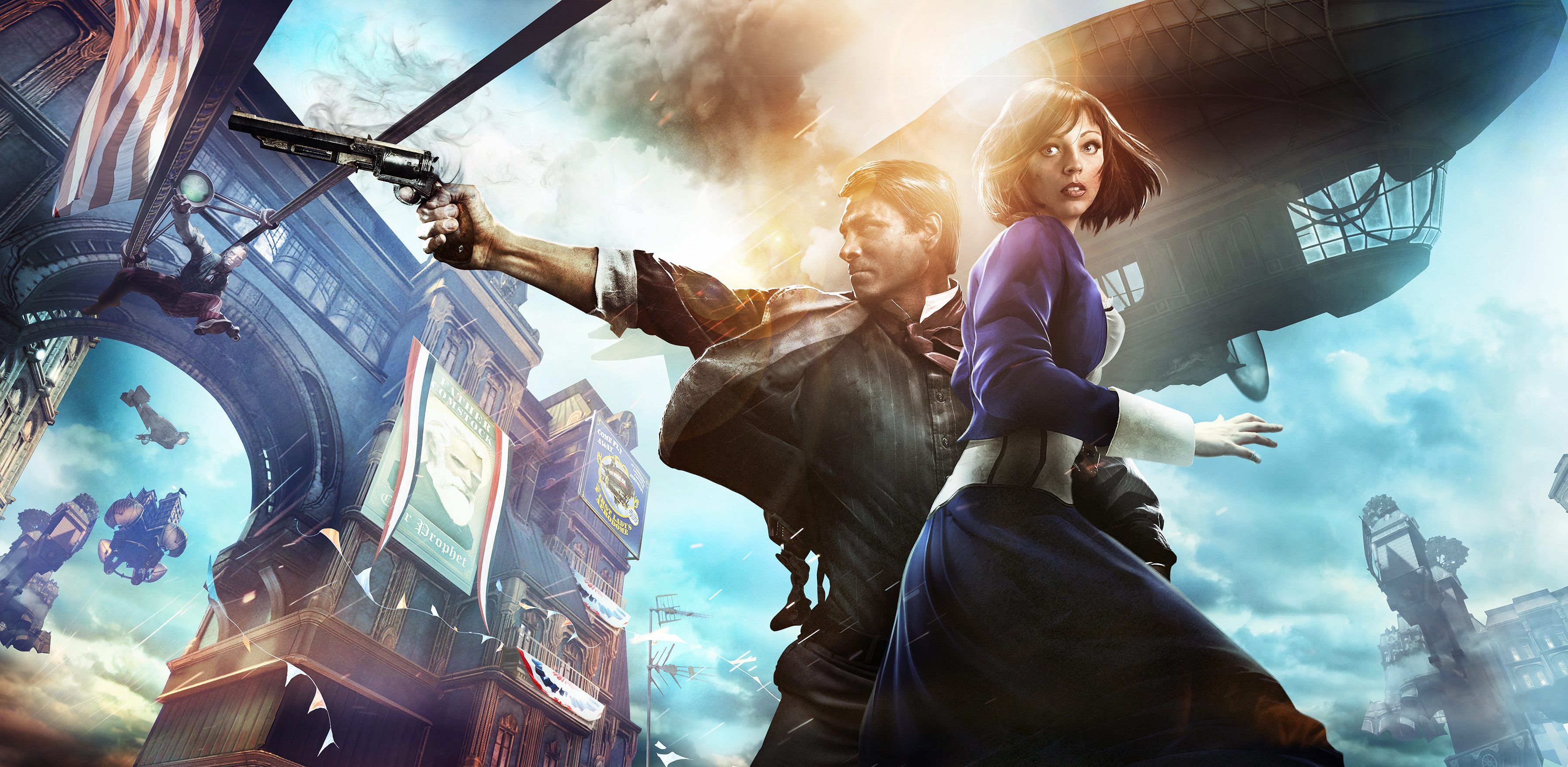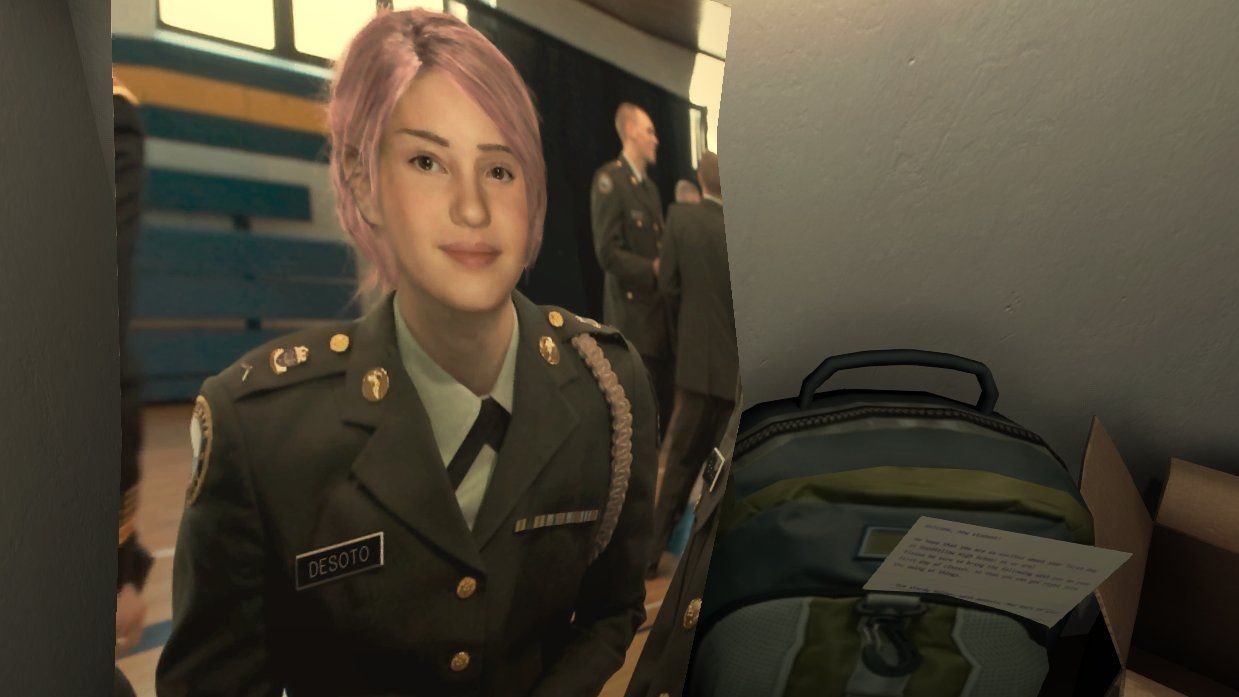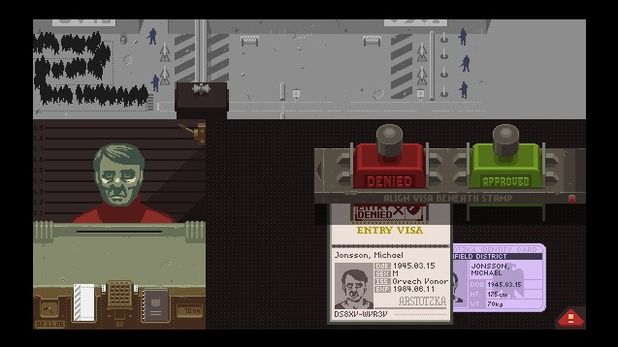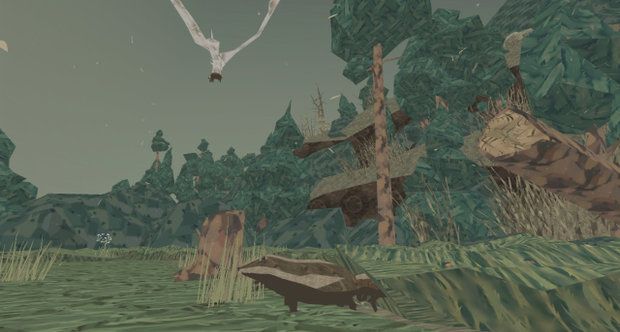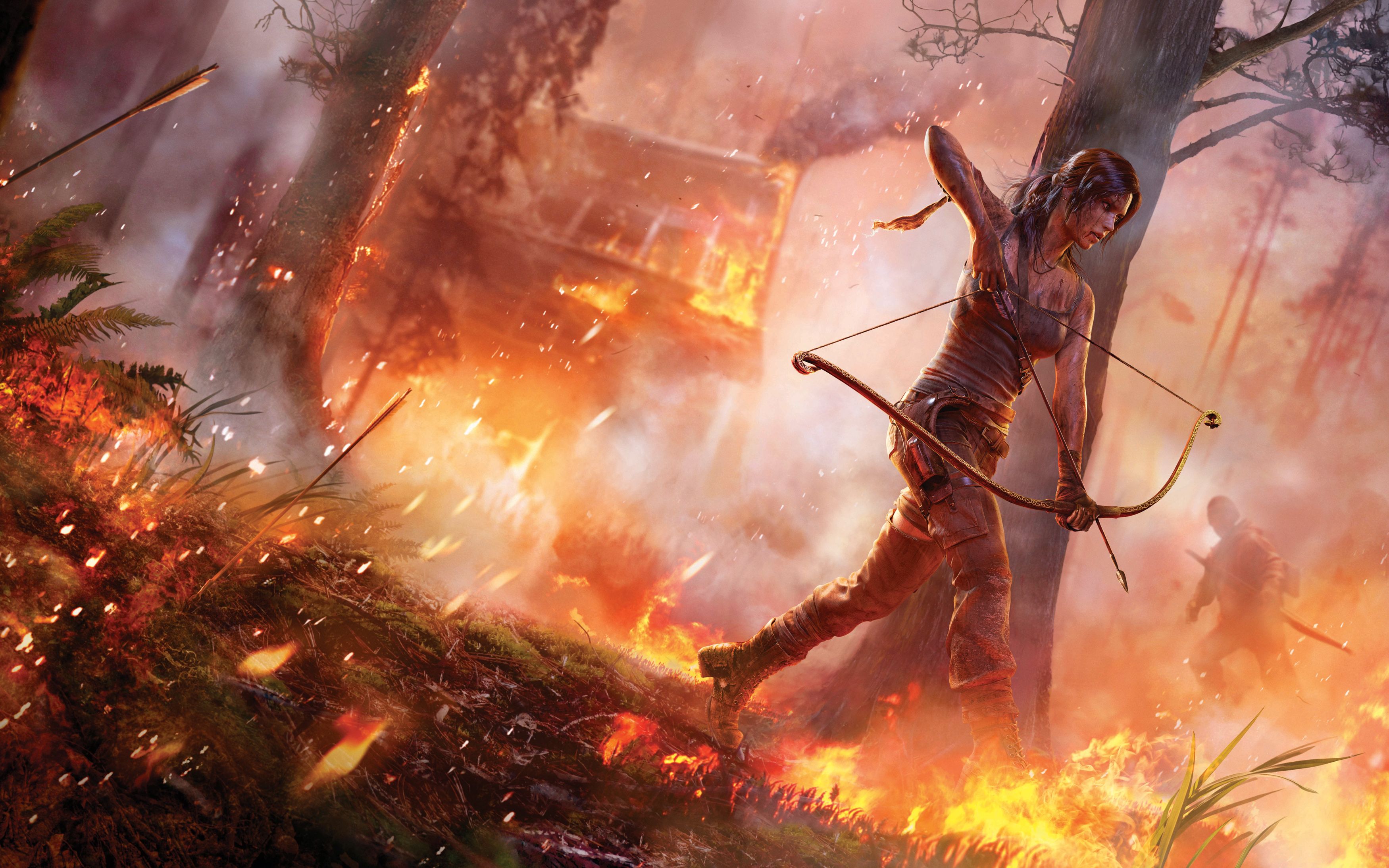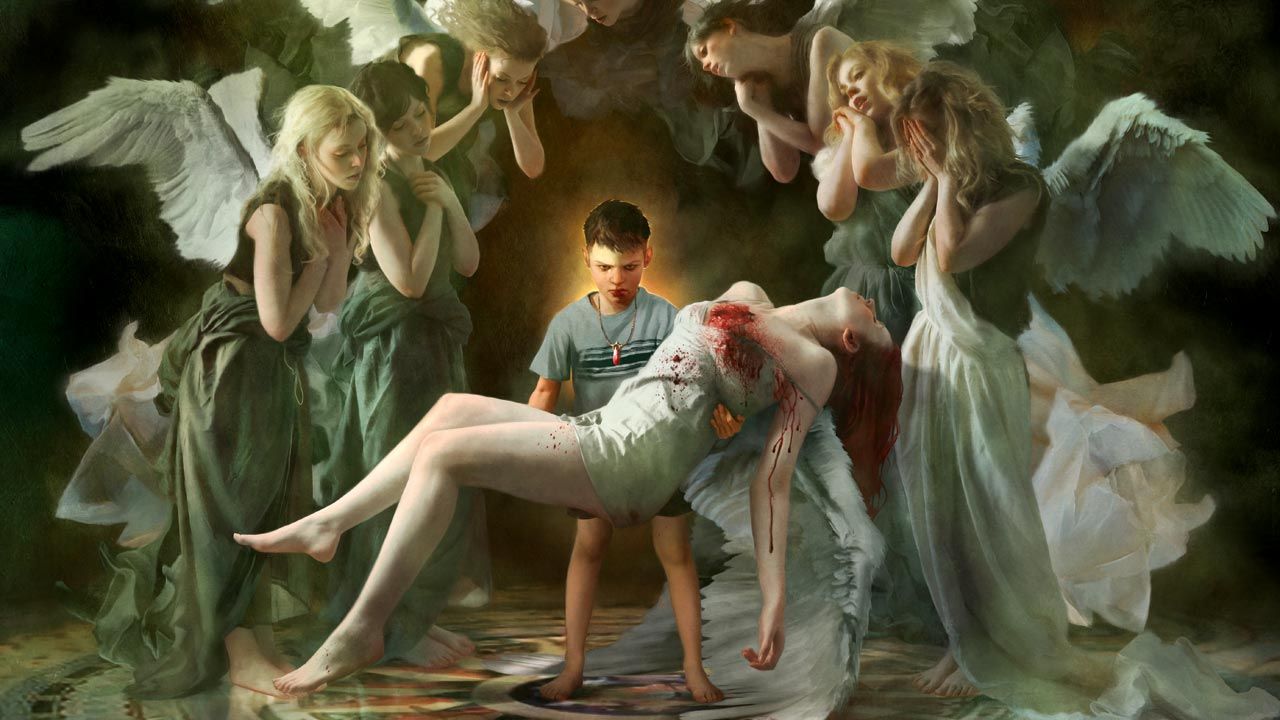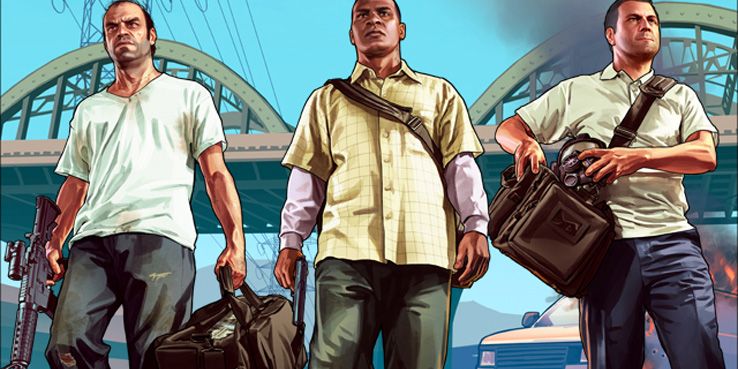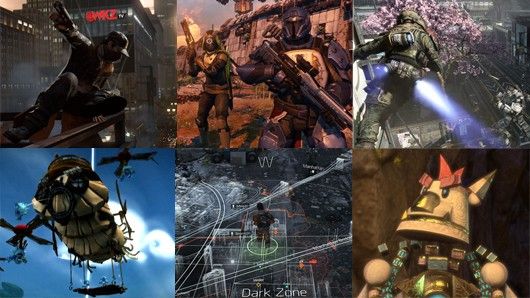For most of 2013, it's been a great year for games. Throughout the year, we've discovered a wondrous city in the sky, journeyed across the barren wastes of post-apocalyptic America, survived the confines of an uncharted island, and more - all through some of the most technically-accomplished and crafted games and stories that have been seen across the current generation.
After eight years of Xbox 360, PS3, and Wii, the next-generation, as of this writing, has already arrived with two new consoles on their way, and even more games coming along with them in the next several years, along with the promise of more powerful hardware and technical capabilities. But, as the current-gen consoles begin their fade away as the PS4 and Xbox One make their way on to the horizon, it should be remembered that 2013 was the capstone year for a generation of gaming that improved, refined, and most of all, changed the landscape of storytelling in gaming as we know it.
As the transition from current to next-gen begins, it brings the question: how will the final games of the current generation released this year influence the next-generation of stories in gaming?
Obviously, new hardware brings the possibility of better-looking games, improved graphical prowess and artistry, and the chance to push gaming further - DualShockers is looking back at the best of the current-gen's final year to see which games, and how, can bring a brighter future to the shining next-gen in driving video game storytelling to where it hasn't gone just yet.
The Story Comes First
In particular, 2013 was the truly the year where storytelling in gaming shined. In the first half of the year, BioShock Infinite and The Last of Us provided engrossing stories that not only were entertaining, well-written, and incredibly engaging, but also thought-provoking and on the same league of the best films, novels, or other entertainment mediums. In the twilight of the current-gen, 2013 gave us one of the biggest game changes: storytelling-driven games, rather than game-driven stories.
Aside from their huge critical and commercial successes, their well-refined and deep gameplay, and their high production value and scope, BioShock Infinite and The Last of Us stand out for their genuine focus on using the gaming medium to tell a story, first and foremost. Numerous gunfights and setpieces aside, BioShock Infinite and The Last of Us also used compelling characterization and drama to make characters and worlds that we cared about and related to, just as much as caring about what weapon we were using or what stats to build on.
Obviously, these are not the only two examples - 2013 also saw Rockstar Games take on their most ambitious story yet in Grand Theft Auto V, while The Fullbright Company quietly presented a story of family and love in Gone Home. But, much like when the release of Watchmen and The Dark Knight Returns in 1986 established that comics and graphic novels were fully capable of telling complex and meaningful stories, BioShock Infinite and The Last of Us completely established that games are just as capable of the same, and maybe even more so.
A Unique Perspective from the Unlikeliest of Places
Like how The Last of Us and BioShock Infinite brought relatable, human stories through equally-compelling tales of violence and adversity, so too did several of 2013's best stories and games come from the unlikeliest of places. Specifically, indie and downloadable titles from throughout the year showed that uncovering your family's history, living the newly-awakened life of an office drone, and protecting a family of badgers could enlighten as well as innovate.
Among the countless stories of war-torn soldiers and conflicted killers and heroes, 2013's selection of indie titles gave stories of ingenuity, emotion, and hard decisions through unlikely perspectives and lives, but proved just as compelling as any war saga or hero's tale.
In particular, indie hits like Gone Home and The Stanley Parable, though small in scale and even smaller in the size of their development teams, can have enormous effects on next-gens for simple stories with complex themes and emotions. In Gone Home's exploration of the Greenbriar mansion, a minimally-designed interactive experience gave way to a heartbreaking story of dejection, the struggles of adolescence, and most of all, a love story with all of the awkwardness, excitement, and that rush of connection that a teen romance can bring. Likewise, The Stanley Parable's similar focus on simple gameplay and environment-driven narrative brought a lucid, enlightening (and often-times scarily accurate) depiction of the monotony of office life, and the dreams of searching for life's greater meaning.
Tough Times, Harder Decisions
Likewise, Papers, Please and Shelter both showed that approving/denying a foreign immigrant's passport or protecting a collection of baby badgers can be just as harrowing an experience as the throes of war, or the harsh costs of survival in the apocalypse. The at-first confidence of stamping approvals or rejections on passport documents in Papers, Please used simple gameplay mechanics (and a bizarre concept for a video game, altogether) to make one of the most tense and stressful game experiences of the year, thanks to the constant fluctuation of new laws and rules, and the increasing stresses of your character's (and his family's) well-being. Take too much time on an approval or rejection, strike off the heating bills or medicine to keep your family alive. Approve an unknown immigrant, and he may just be the cause for a devastating terrorist attack. The concept of Papers, Please was underscored by simple gameplay, but driven by very real, and very harsh, circumstances of life and reality that went beyond just pixels, and into genuine human concerns and emotions.
The same can be applied for Shelter, the "badger simulator" that forced players into the role of a mother badger protecting her young from the wildly unpredictable circumstances of life out in the wild. Across its short but tense campaign, the threats of the wild loomed every second - making sure that your young badgers were kept fed and free of illness, while equally being on the watch for swooping hawks or raging rivers that would swipe them from your grasp at any moment's notice. As games like Battlefield 4 or Call of Duty: Ghosts gave us the harsh realities of war and violence, so too did Shelter give us a harrowing tale of survival and distress through an unlikely protagonist, but one no less sympathetic than your PTSD-ridden soldier or gravely-conflicted superhero.
An Old Story with a New Take
While 2013 saw plenty in the way of new installments of well-worn franchises in equal amounts to new IPs and stories, the year also saw several reboots find their way by taking classic characters and taking them on with new fervor and a whole new look.
Both Lara Croft and Dante saw their long-running franchises rebooted in new games (Tomb Raider and DmC: Devil May Cry, respectively), with over a decade of history and continuity done away with in exchange for a new story - reboots that saw equal parts praise and vicious criticism when they were first announced, and for good reason. With Tomb Raider and DmC: Devil May Cry radically redesigning both of their respective characters and doing away with long-running stories of the past, criticism for the games before launch was certainly harsh and venomous.
But, Tomb Raider and DmC: Devil May Cry proved themselves as more than just lazy retreads or reboots looking to cash in on an established franchise. Instead of resting on their laurels, Tomb Raider and DmC showed that new life can be driven into a franchise, in particular with both of them having incredibly strong narratives and taking the previous expectations of these well-known characters and flipping them on their heads. Tomb Raider took the over-confident adventurer of the past and presented her as a struggling survivor trying to find her footing in uncharted areas, while DmC took the cocky demon killer and gave him a real human conflict and determination to find his origins, and to discover his true potential.
As many of the current franchises and series enter the next-gen in their third, fourth, and even fifth (and beyond) installments on the next-gen, it's easy (and not at all unreasonable) to shrug off reboots and remakes as non-creative cash-ins to bring back an old franchise. But, Tomb Raider and DmC: Devil May Cry proved the exceptions that, when done thoughtfully and purposefully, can make you incredibly excited to see an old friend again in a whole new light - an example that could probably go for many series that could use the same.
Three Heroes, One Grand Tale
Grand Theft Auto V took on a big risk in its release. Launching just two months before the wave of the next-gen, Rockstar took it upon themselves to see off the current-gen with their biggest, most ambitious, and complex open-world game to date - and most of all, they delivered.
Rockstar's GTA V brought all the usual features of any Grand Theft Auto title - a huge open world, a nearly limitless amount of activities to do, places to explore, and an incredibly colorful (if satire-filled) group of characters, heroes, and those to root against. However, even with GTA V's expansion of its map, its abundance of new activities and an overwhelming number of missions and side jobs to complete, its biggest accomplishment came from just one change - the switching perspectives of its three protagonists.
Through Michael, Franklin, and Trevor's wildly different lives and perspectives in Los Santos, Rockstar gave a revitalized take on Grand Theft Auto that provided a complex, but always engaging narrative that could be both intimate and epic. With each of the three protagonists taking on the lives of various sectors of the Los Santos populace - Michael's wealthy apathy, Franklin's up-and-coming climb into the organized crime world, and Trevor's rampages and craze across the city's outskirts - both solved many of the series' long-standing problems while taking it into exciting new storytelling directions.
Swapping between Michael/Franklin/Trevor provided not only a unique twist on the open-world formula of wandering as one character, but also served to the narrative and gameplay strengths of the title as a whole. With a few selections, the story could take an instant change of pace, and sense of time and place, as the aftermath of Trevor's bloody rampage could switch almost instantly to Michael's lounging by the poolside drinking whiskey, giving small insights into the daily lives of the characters and making Los Santos feel alive and the characters a part of its daily existence. Driving in Franklin's convertible could suddenly transition to the chapter of Trevor's story, making story progression both easy, and most of all, enjoyable and at the player's will. Like the gaming equivalent of Pulp Fiction, Grand Theft Auto V gave a grand story of crime through multiple perspectives, a constantly shifting pace and sense of location, and plenty of drama and well-crafted characters, dialogue, and narrative.
The Next-Gen of Storytelling
The next-gen certainly has a lot to live up to - over eight year's worth of innovation and experimentation in story, writing, and characterization has led to a generation filled with some of the best stories that gaming has told yet. Beyond the examples mentioned, the current-gen has had the likes of BioShock, Heavy Rain, Call of Duty 4: Modern Warfare, Metal Gear Solid 4: Guns of the Patriots and more take gaming to literary and cinematic heights.
In the last year of the current console cycle, the generation in 2013 was able to shine through some compelling stories that improved on franchises and series, took genuinely daring creative risks, and most of all, innovated to prove that video games are just as capable of telling deeply-engaging and rich storytelling experiences. Now with the next-gen just around the corner, it's up to the developers and creative teams behind them to see what this year has brought for great game stories, and to started on writing the next chapters.

